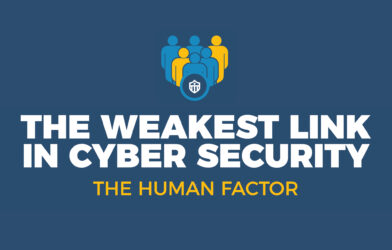
In the realm of cybersecurity, one often hears about hackers as malicious actors, breaching systems, and causing chaos. However, there exists a parallel universe known as “ethical hacking,” where skilled professionals use their hacking prowess for good. Ethical hackers, also known as penetration testers or white-hat hackers, play a crucial role in securing digital environments by identifying vulnerabilities before malicious hackers can exploit them. In this article, we will delve into the fascinating world of ethical hacking, shedding light on its importance, methodologies, and ethical considerations.
As the digital landscape expands, organizations face an ever-growing array of cybersecurity threats. Malware, data breaches, ransomware attacks, and vulnerabilities in software and systems can lead to severe financial and reputational damage. To combat these threats effectively, organizations employ ethical hackers to proactively identify and mitigate security weaknesses.
Ethical Hacking vs. Malicious Hacking:
- Ethical hacking involves authorized and legal attempts to penetrate systems to discover vulnerabilities.
- Malicious hacking is unauthorized, illegal, and aims to exploit vulnerabilities for personal gain.
Ethical hackers wear many hats and serve a vital function in enhancing cybersecurity:
1. Identifying Vulnerabilities:
Ethical hackers actively seek out vulnerabilities in software, networks, and systems.
2. Penetration Testing:
They perform controlled attacks on systems to assess security measures and identify weak points.
3. Vulnerability Assessment:
Ethical hackers conduct comprehensive assessments to identify security weaknesses and their potential impact.
4. Security Patching:
They assist organizations in addressing vulnerabilities and implementing security patches.
5. Intrusion Detection:
Ethical hackers develop and monitor intrusion detection systems to detect and respond to potential threats.
Ethical hackers employ a variety of methodologies to uncover vulnerabilities and secure digital assets:
1. Reconnaissance:
Gathering information about the target, including network architecture, applications, and potential vulnerabilities.
2. Scanning:
Identifying open ports, services, and potential entry points into the system.
3. Exploitation:
Attempting to exploit vulnerabilities found during reconnaissance and scanning phases.
4. Post-Exploitation:
Assessing the extent of the breach and potential damage that could be inflicted by an actual malicious hacker.
5. Reporting:
Ethical hackers provide detailed reports to organizations, outlining vulnerabilities and suggesting remediation steps.
Ethical hacking is not a free pass to engage in any form of hacking activity. Ethical hackers must adhere to strict ethical guidelines, including:
1. Authorization:
Ethical hackers must have explicit authorization from the organization before attempting any penetration tests.
2. Legality:
Activities should be within the bounds of the law and comply with relevant regulations.
3. Confidentiality:
Ethical hackers must respect the confidentiality of sensitive data and information they access during testing.
4. Responsible Disclosure:
Vulnerabilities discovered should be reported responsibly to the organization, allowing them time to address the issues.
5. No Harm:
Ethical hackers must not cause any harm to systems, data, or infrastructure during their testing.
To become an ethical hacker, individuals typically undergo extensive training and certification programs. Some well-known certifications include Certified Ethical Hacker (CEH), Certified Information Systems Security Professional (CISSP), and Offensive Security Certified Professional (OSCP).
Ethical hacking represents a proactive approach to cybersecurity, helping organizations stay one step ahead of malicious hackers. Ethical hackers leverage their skills and expertise to identify vulnerabilities, strengthen security measures, and safeguard digital assets. Their ethical considerations, strict adherence to guidelines, and commitment to responsible disclosure ensure that their actions ultimately contribute to a safer digital world. In an era where cybersecurity threats are pervasive, ethical hacking emerges as a beacon of hope, defending the digital frontier and securing the future of technology.



